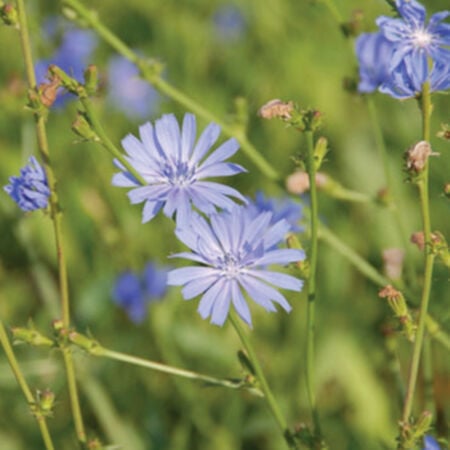Forage Chicory, Broadleaf
Key Attributes
Key Attributes
Product Details
Weight
1Depth
1Height
9Width
6Sub Type
ChicoryBotanical Name
Cichorium intybusSeed Type
SeedAdditional Characteristics
Attracts PollinatorsBest Time To Sow
February-April, September-OctoberSow Depth
1/4"Broadcast Rate Per Acre
5-15 lbs.Breed
Open-pollinatedSun
Full SunUses
ForageLife Cycle
AnnualCategories
Cover CropDays To Maturity (# Days)
70Components
Growing Instructions
Shipping Schedule
Our Seed Promise
 "Agriculture and seeds" provide the basis upon which our lives depend. We must protect this foundation as a safe and genetically stable source for future generations. For the benefit of all farmers, gardeners and consumers who want an alternative, we pledge that we do not knowingly buy or sell genetically engineered seeds or plants.
"Agriculture and seeds" provide the basis upon which our lives depend. We must protect this foundation as a safe and genetically stable source for future generations. For the benefit of all farmers, gardeners and consumers who want an alternative, we pledge that we do not knowingly buy or sell genetically engineered seeds or plants.
The mechanical transfer of genetic material outside of natural reproductive methods and between genera, families or kingdoms, poses great biological risks as well as economic, political, and cultural threats. We feel that genetically engineered varieties have been insufficiently tested prior to public release. More research and testing is necessary to further assess the potential risks of genetically engineered seeds. Further, we wish to support agricultural progress that leads to healthier soils, to genetically diverse agricultural ecosystems, and ultimately to healthy people and communities.
To learn more about the "Safe Seed Pledge" please visit www.councilforresponsiblegenetics.org.

